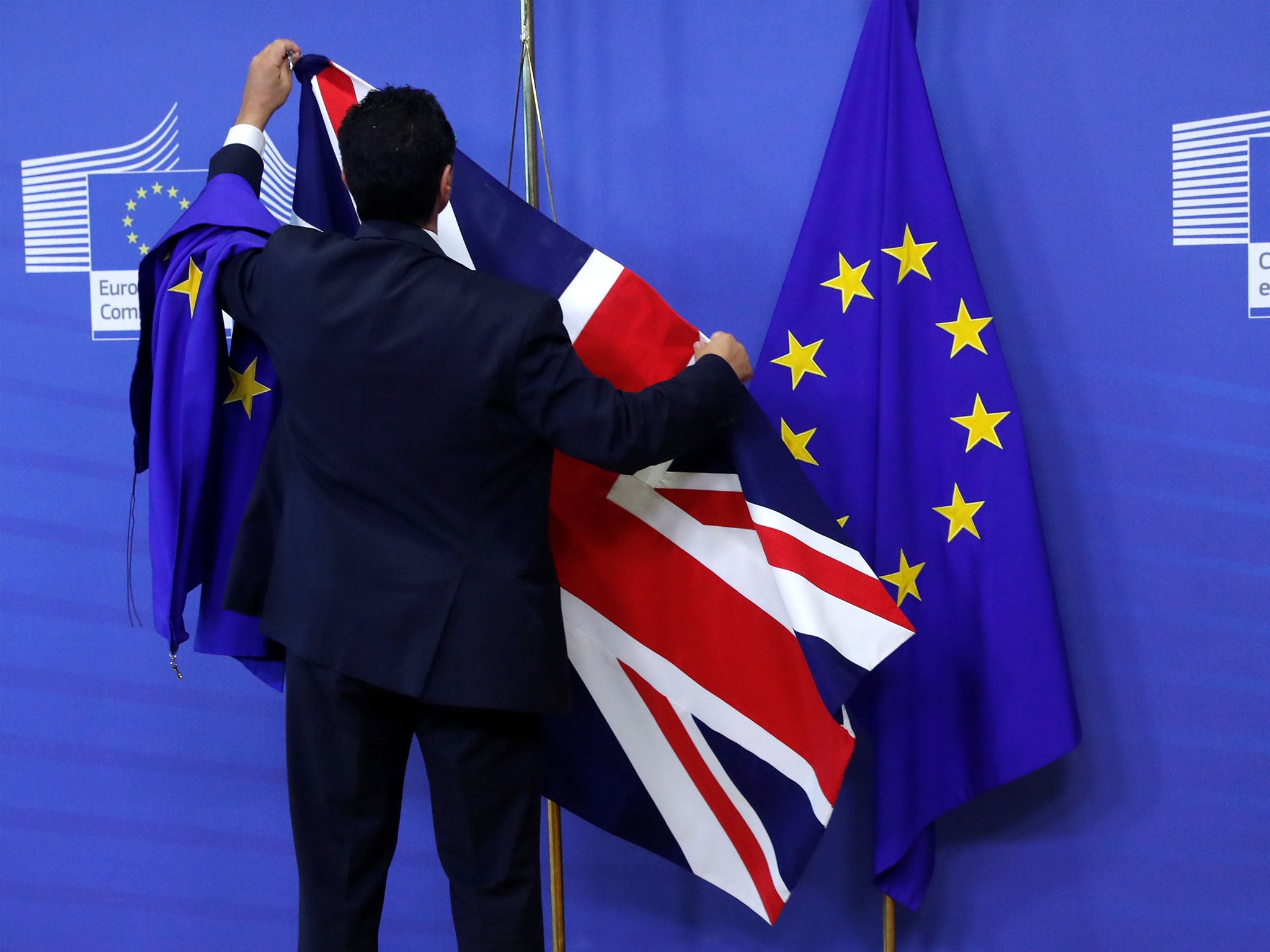Article 50 author calls for Brexit to be halted with a warning of ‘disastrous consequences’
Lord Kerr of Kinlochard is one of more than 60 prominent figures in Scotland who signed a joint letter warning of damages to the UK’s international reputation

The author of Article 50 has called for Brexit to be halted, warning that the “disastrous consequences” of Britain's decision to leave the bloc are becoming "clearer every day".
Lord Kerr of Kinlochard is one of more than 60 prominent figures in Scotland who signed a joint letter saying that Brexit has seriously damaged the UK's international reputation.
The peer, who was Britain’s permanent representative at the EU for five years from 1990, said when he wrote Article 50 – the clause in the EU’s Lisbon Treaty that outlines the steps a country must take to leave the bloc voluntarily – he believed it would only ever be triggered by a dictatorial regime.

The letter, published in The Herald, also called for a “UK-wide debate about calling a halt to the process” and was signed by former Nato secretary general Lord Robertson, Scotland’s former first minister Henry McLeish and Liberal Democrat ex-leader Lord Menzies Campbell.
“We see our society, economy and politics becoming ever more undermined due to the impact of Brexit. We recognise that a narrow majority voted to leave the European Union, but the disastrous consequences are now becoming ever clearer - every day,” the letter says.
“Even before the UK has left the EU, we face falling living standards, rising inflation, slowing growth and lower productivity.
“Our international reputation has been seriously damaged, leaving the UK weak, with diminished influence, in an increasingly uncertain and unstable world.

“In a democracy, it is always possible to think again and to choose a different direction. We need to think again about Brexit, to have a UK-wide debate about calling a halt to the process and changing our minds.”
“We call for a national debate on Brexit. We ask our fellow citizens, and our politicians, to think again. It is time to call a halt to Brexit,” the letter continues.
Other signatories included SNP MEP Alyn Smith, former Tory MEP Struan Stevenson, Scotland's former chief medical officer, Sir Harry Burns, historians Sir Tom Devine and Chris Smout and director of Friends of the Earth Scotland, Dr Richard Dixon.
Mr McLeish, the former Scottish first minister, told BBC Radio Scotland's Good Morning Scotland programme that Brexit was “tearing Britain apart”.
“Enough is enough because we see Brexit taking us towards a catastrophe – there are no perceived benefits – and in the meantime we see negotiations in Brussels going nowhere, we see a Cabinet and Government at Westminster shambolically handling affairs.
“And one of the big issues for me is that, over the next two years, Parliament in London will face seven Bills about exiting the European Union. What happens then to housing? What happens then to climate change? What happens to the big issues that Britain faces?”
The intervention from Mr McLeish and other pro-Remain figures came after a row exploded between Cabinet members over the handling of Brexit negotiations.
There is little evidence of mass public support for halting Brexit entirely. The SNP and the Liberal Democrats, who campaigned on staunchly pro-EU platforms at the general election, both saw their vote share drop.
However, a recent survey by ICM suggested momentum was gathering for a vote on the terms of the agreement.
When respondents were provided with the statement “a second referendum to allow people to decide whether the UK leaves or not, based on the outcome of the negotiations”, 32 per cent said they agreed – a six point increase on the same survey six months ago.
In response to the letter, a spokesperson for the Department for Exiting the European Union said: “In one of the biggest democratic exercises in our history, the British people voted to leave the European Union.
“The UK Government is committed to delivering on that mandate, by building a new deep and special partnership with our closest allies and neighbours in Europe.”
Agencies contributed to this report
Join our commenting forum
Join thought-provoking conversations, follow other Independent readers and see their replies
Comments
Bookmark popover
Removed from bookmarks